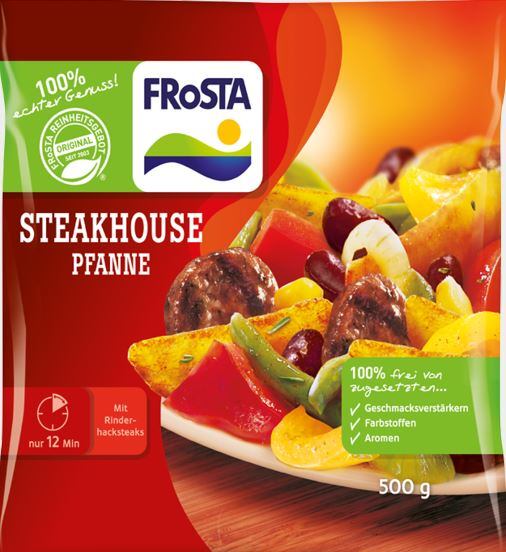German frozen food company Frosta will list more than 200 ingredients in its range of 90 products, which includes wild salmon in puff pastry, chicken paella and Indonesian noodles.
Its ingredients are sourced from 35 different countries, and the labelling will apply to all ingredients – such as the bread in breaded fish.
‘We proved them wrong’
Head of public relations at Frosta, Friederike Ahlers, told FoodNavigator: “Even though the EU parliament is asking for more regulation, the EU commission and industry lobbyists claim that more transparency would make products more expensive and that even jobs might get lost."
An EU report published in May this year estimated that operating costs would increase 10 to 15% for sectors that did not have ingredients of many different origins, and could reach 30% for some products.
But Ahlers said its new printing technology had proven them wrong. "The costs are marginal. Once you have all the information together – which we have anyway due to our purity, no additives since 2003 – the pure printing process does not cost much.”

The first product bearing the new information – a steakhouse pan – was rolled out in August, but the company said that all of its German line would bear the country-of-origin information by mid-2016.
The company had decided to list the information voluntarily because it believed traceability to be important, and it even expected to recover the costs through increased sales as a result of the increased transparency.
“Legally we do not have to print the country of origins on the packs. The law is only forcing producers of fresh vegetables, fruit and fresh meat as well as of eggs to provide clear information concerning the country of origins. As soon as tomatoes are frozen or meat is frozen and put into a product this is not mandatory anymore,” said Ahlers.
'Make it an EU standard'
Campaign group FoodWatch praised Frosta’s labelling and called for it to become the EU standard. “We need legally binding origin information for the main ingredients of food, so that all consumers know where they stand. This brings more food safety because labelling requirement would finally force the food industry to (…) establish functioning traceability systems,” it said on its website.
But industry trade group, the Food and Drink Federation, rejected mandatory origin labelling due to the complexity in sourcing many different seasonal ingredients. "It would be completely impractical to require variant labels to meet all such circumstances and would reduce consumer choice by making manufacture of many products uneconomical," it said.
According to the EU report, nearly 43% of respondents said they would use detailed origin labelling to favour national or local production while just under 13% said it reassured them over the product’s quality.
A video (in German) shows how Frosta's new printing system works.
